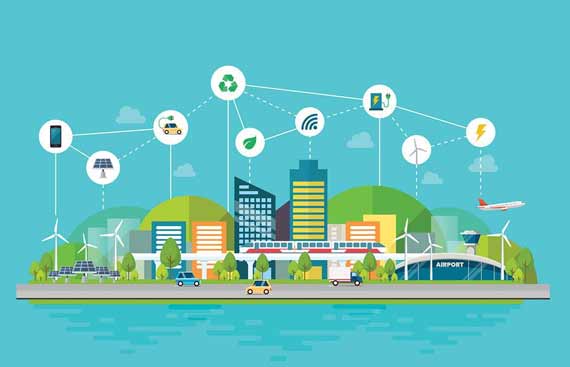Improving Canadas Sustainability Journey With Data Strategies

Businesses in Canada focus on achieving climate resilience by implementing the right data strategy to understand essential climate data to help clients realize the highest priority climate opportunities and use.
Climate change is the single greatest challenge of this era. With Canada’s climate warming twice as fast as the global average, detrimental effects such as heat waves, wildfires, and floods are costing billions and risking people's lives.
The steps required to reduce climate risk need transition and adaptation plans. The federal government has pledged to mitigate GHG emissions by 45 percent by 2030 and is investing in climate solutions to help Canada achieve a low-carbon future. Public sector organizations are setting climate targets and planning for the capabilities, skills, tools, and dedicated environment needed to establish solutions helping to mitigate climate change impacts.
Whether improving ESG governance, improving food safety, reducing plastic waste, understanding weather patterns, or developing tools for sustainable agriculture, companies aspire to create a resilient, sustainable future for Canada and the world.
Identifying the steps needed to effect real change is the first step to making the world work better. Some of the components that help to yield optimal results include identifying and developing a data strategy that will be a trajectory to drive decisions and actions. Other practices include building a collaborative partner ecosystem to boost sustainability initiatives and understanding climate data to inform management planning decisions using platforms such as the environmental intelligence suite. Optimizing cloud and open source technology and executing workable solutions also helps to alleviate climate change effects.
Begin With the Right Data Strategy
The fundamental step in the sustainability journey is recognizing the right data strategy. Understanding what climate data is essential to define the roadmap to help clients realize the highest priority climate opportunities and use cases is critical. Finding the right climate-related data is often impeded by manual processes and disparate or duplicate data sources. Centralized access to data, processes, and tools ensures that everyone demanding climate-related data has access to the same source of facts.
This requires assessing the current data landscape to discover methods and efforts to address data gaps for climate initiatives. Recently, collaborative work with Canadian banks took place to understand their climate data challenges and opportunities and define an execution approach for their climate data practice. It found a lack of automated processes that would help access, process, and store data for climate-related initiatives and data and capability gaps in evaluating climate risk.
This collaboration also helped banks create a three-year climate data roadmap that defined the requirements to deal with banks’ climate objectives and align with their target enterprise data platform, refine use cases and data requirements, and facilitate a climate transformation path to enable climate initiatives.
As governments pursue sustainability initiatives focused on reducing climate risks, shifting to a clean economy, and addressing social, diversity, and inclusion priorities, they need a foundational strategy to access and optimize insights from climate, social, and economic data to maintain and scale these initiatives.
